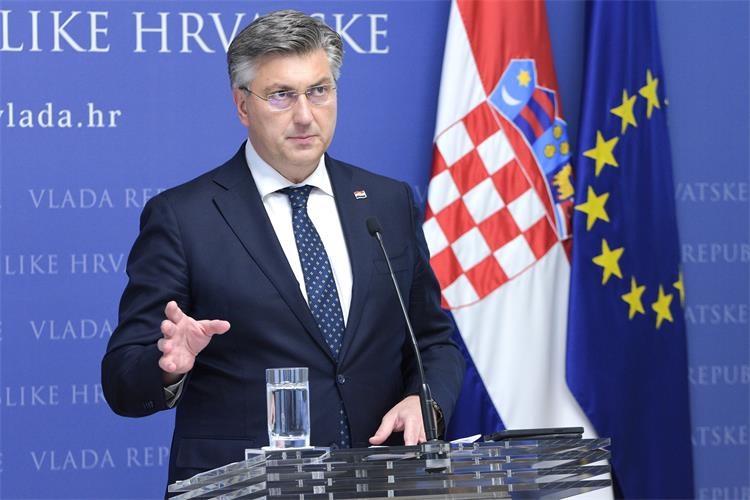- Published: 23.05.2022.
Croatia no longer has macroeconomic imbalances
Prime Minister Andrej Plenković said on Monday that Croatia no longer had macroeconomic imbalances due to progress in numerous indicators, from pay rises, employment growth to public debt reduction and a drop in unemployment, to which activities of the euro introduction strategy also contributed.
As part of the European Semester Spring Package, the European Commission on Monday released the results of an in-depth review of the macroeconomic situation in 12 EU member states where macroeconomic imbalances had previously been identified, and only two countries, Croatia and Ireland, no longer have macroeconomic imbalances.
Plenković noted that the assessments and recommendations were based on the National Reform Programme for 2022 and the Convergence Programme for 2023-2025, which the government had adopted and then sent to the Commission in late April.
According to the prime minister, there were several macroeconomic indicators that were conducive to the efforts to free Croatia of macroeconomic imbalances and put Croatia in better shape than it was, for example, in 2014.
Some of the indicators include the growth of exports of goods and services, positive trends in public debt reduction, a turnaround on the labour market, with the number of insured persons with the Croatian Pension Insurance Fund (HZMO) nearing the record 1.61 million from 2008. Furthermore, said Plenković, the difference in the employment rate between Croatia and the EU is narrowing, with the EU last year recording an employment rate of 73.1% and Croatia of 68.2%.
Also, the average net salary has seen a positive growth trend, and since 2017 it has gone up by HRK 1,824 or 32% to HRK 7,452, the minimum net salary, which is currently at HRK 3,750, has also increased, and the unemployment rate has dropped from 15.5% in 2016 to 7.5% in 2020.
In terms of the unemployment rate, Croatia is close to the EU average, and the youth unemployment rate is at a record low, with 31,402 unemployed young persons at the moment.
In addition, Croatia is getting closer to the average GDP per capita in the EU, and it is currently at 70%.
Plenković recalled that the aim was to reach 75% of the EU average by the end of the decade.
PM: We're heading towards "good report" on convergence
The prime minister underscored that the implementation of the strategy for the introduction of the euro, as well as the many activities carried out in that regard, had contributed to the results.
"It is our firm belief that joining the euro area will further strengthen Croatia's international position," Plenković said.
He stressed that the Commission's convergence report, which is expected to be release soon, was the last one before the release of the final decision on Croatia's accession to the euro area as of 1 January 2023, and the decision is expected in the first half of July.
According to our contacts, we are heading towards a good convergence report for Croatia, Plenković said.
By joining the euro area, the prime minister said, Croatia will improve its investment rating, the state, banks, and ultimately citizens, will pay lower interest rates on borrowing, and membership in such a community also makes it easier to overcome crises.
Text: Hina
